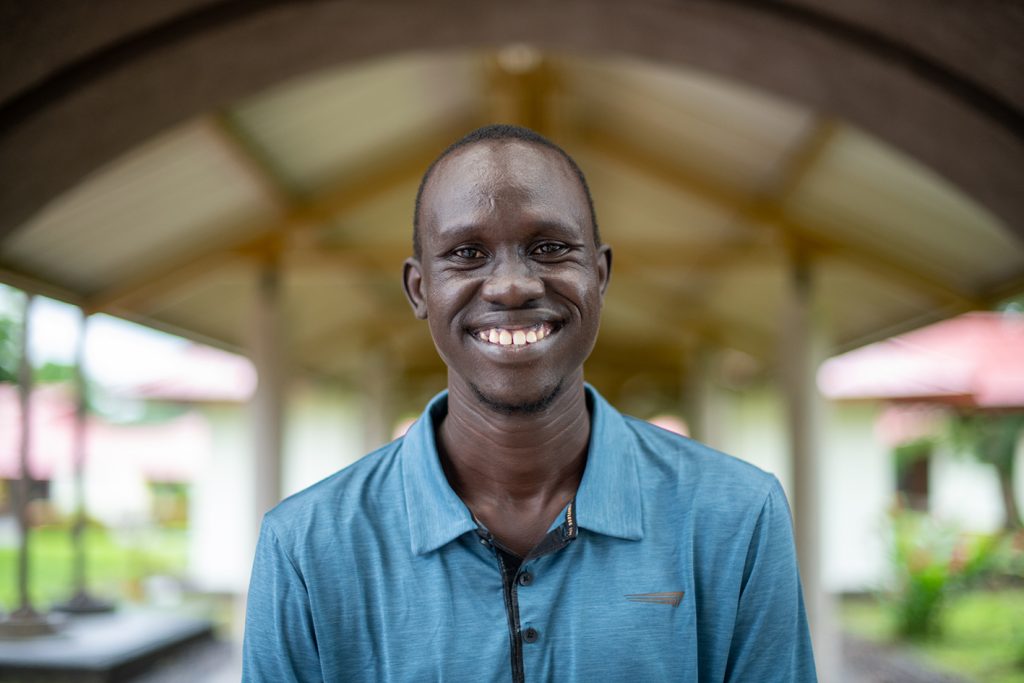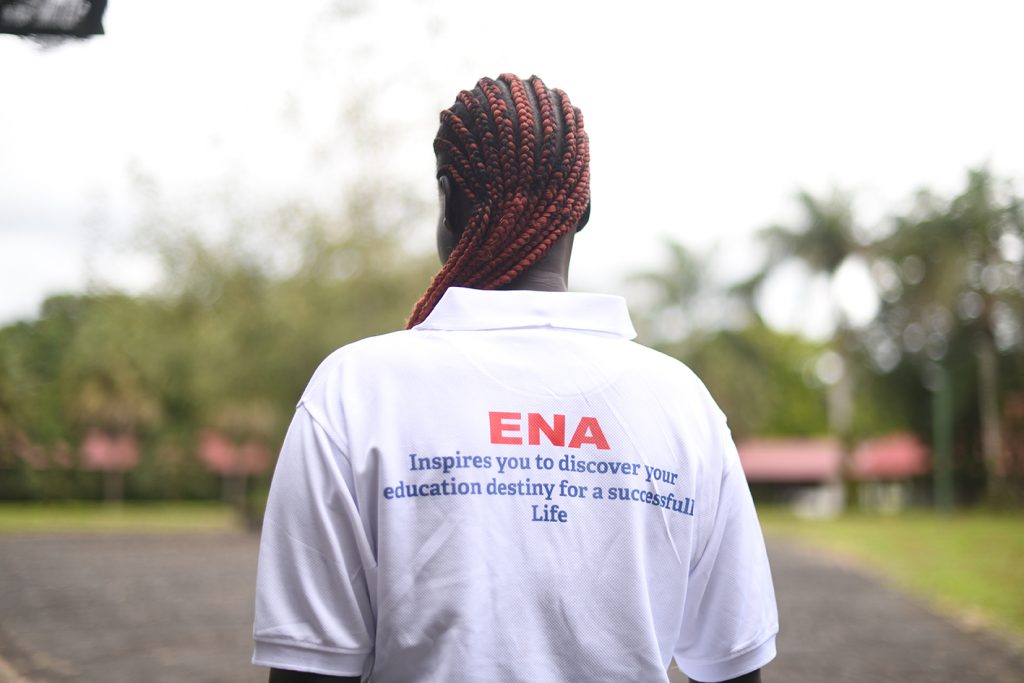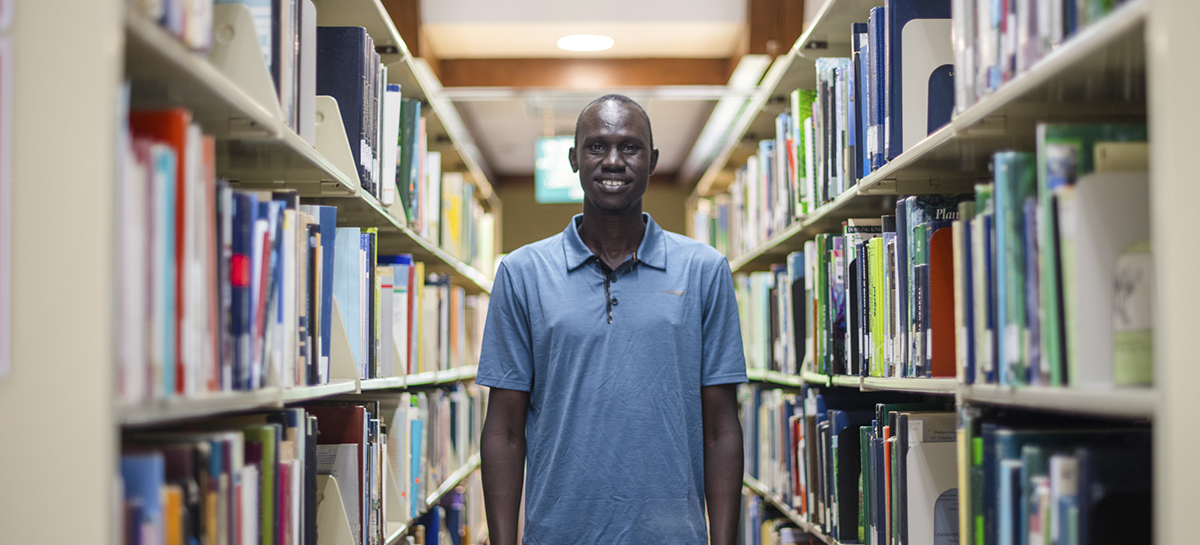Jacob Deng Bol Deng (Class of 2025, South Sudan) is 28 years old and comes from the youngest country in the world. When he was born, South Sudan was embroiled in a lengthy war to achieve independence. The second Sudanese civil war lasted more than 20 years, and it was due to this conflict that Jacob lost his father. Growing up as a teenager without a father, Jacob was determined to provide for his eight younger siblings. His mother, who never had the opportunity to study, was adamant that her children would get an education.
Jacob managed to start high school with support from his uncles, but when armed conflict again erupted in 2013, it brought new waves of violence that displaced more than two million people and killed thousands more. Jacob was 16 when he traveled with his family to Uganda to seek refuge. It took two years for his family to settle in a refugee camp, and only when he felt they were in a safe place did he decide to return to South Sudan. He traveled to a small town in the south that was less affected by the war, where he could work, send money to his family, and, most importantly, continue his education.
He was a good student and longed for an opportunity that would allow him to attend university and chart a different path for himself and his family. However, Jacob had to be the breadwinner, so he dedicated himself to work for several years.

“I could not take care of my family and my studies at the same time. I decided to start looking for scholarships because it was my only chance. A friend sent me the EARTH link. I don’t know where he got it from, but we both decided to apply together. I was in a remote area and had little connectivity, so I asked my friend to help me upload my documents and complete my application,” Jacob shares.
The unconditional help of his friend was key in his life. Modeling his friend’s generous help and companionship, Jacob created Education Needs All (ENA), a platform where vulnerable youth from South Sudan – and now all over Africa – can access information about scholarship opportunities inside and outside the continent. Jacob’s application was accepted and he became a Mastercard Foundation Scholar at EARTH and began his journey as a change agent. “That opportunity took me from darkness to light,” he says.
Now in his third year at EARTH, Jacob’s goal is to help young people in the same transformational way that individuals and organizations helped him achieve his dreams. He has learned that small actions can lead to big changes. He also wants to give back to the world some of the kindness he has received.
Students from EARTH and other universities have joined Jacob and ENA in volunteering to support youth in rural areas, refugee camps, remote locations, and vulnerable communities in Africa. Between them, they have enabled hundreds of young people to apply for new opportunities. Jacob and ENA volunteers offer mentoring and virtual information spaces and have even set up internet access sites in Africa for people to complete their application processes.

“I launched the platform because all young people need education to overcome social barriers and poverty. We need to break the cycle of poverty and empower these underprivileged youth, displaced refugees, and orphans. South Sudan has a lot of orphans and people who have been at war for a long time, so I think this is a great opportunity for them. And this can be a small action that in the future can become something even bigger,” Jacob explains.
Jacob is also part of a venture called AFRA Moda along with classmates and Mastercard Foundation Scholars, Francis Mtofu (Class of 2025, Malawi), Rosa Rodezno (Class of 2024, Honduras), and Meraki Impact Scholar Ana Kelle (Class of 2025, Brazil). AFRA Moda emerged at EARTH and is focused on making disposable diapers from coconut fiber. Jacob and the team traveled to Mexico last year to compete with this initiative at the Hult Prize, a global competition to develop environmental solutions to the world’s most pressing issues.
One of Jacob’s dreams is to create a chain of people who help each other until, together, they generate a significant impact on the African continent and the world. As Jacob realizes his dream, he is deeply grateful for his mother’s persistence, his uncles’ generosity, his friend’s help, and for all the people who have helped him along the way.
